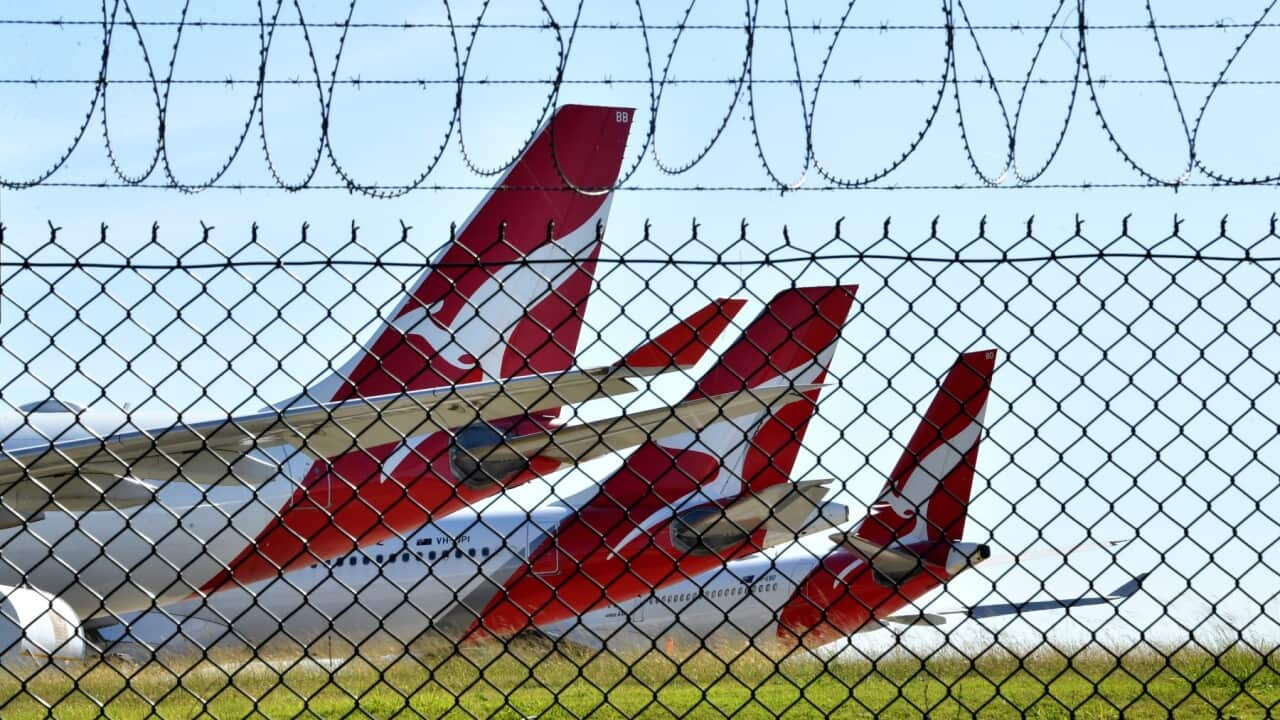Highlights
- Australia may not reopen its international borders to overseas travellers in 2021
- Professor Murphy hinted partial border restrictions and quarantine would remain in place for sometime
- Vaccines may not be enough to open up international borders, warn health experts
Health Department Secretary Brendan Murphy on Monday said it's too soon to predict if it would be safe to lift the COVID-induced border restrictions this year, even as the country has managed to contain the coronavirus better than most other countries around the world, through its strict lockdowns and accurate contact tracing.
'We will go most of this year with still-substantial border restrictions'
Professor Murphy signalled that “substantial border restrictions” and quarantine upon arrival will remain in place for overseas arrivals throughout the year despite plans for a nation-wide vaccine rollout.
“We will go most of this year with still-substantial border restrictions, even if we have a lot of the population vaccinated, we don't know whether that will prevent transmission of the virus and it is likely that quarantine will continue for some time,” Professor Murphy said in an interview with

Qantas reopens international bookings from July. Source: AAP
In a statement to SBS Punjabi, the airline clarified that the restart of international flying would be subject to vaccine rollouts and the government reopening the international borders.
“We continue to review and update our international schedule in response to the developing COVID-19 situation. Recently we have aligned the selling of our international services to reflect our expectation that international travel will begin to restart from July 2021," said a Qantas spokesperson.
How will vaccine roll-out impact border restrictions?
Australia’s immunisation drive has been brought forward from March to mid or late February, which will begin after the Therapeutic Goods Administration approves the Pfizer vaccine.
Announcing the rollout strategy, Prime Minister Scott Morrison said 80,000 Australians would get the vaccine in a week and 4 million by the end of March. But since it is not yet known whether the vaccines being rolled out around the world will be able to control the transmission of the virus, Tony Blakely, an epidemiologist and public health specialist at the University of Melbourne warned that it is likely that partial border restrictions and quarantine will be retained as part of arrangements for returning travellers for "quite some time".
But since it is not yet known whether the vaccines being rolled out around the world will be able to control the transmission of the virus, Tony Blakely, an epidemiologist and public health specialist at the University of Melbourne warned that it is likely that partial border restrictions and quarantine will be retained as part of arrangements for returning travellers for "quite some time".

A dose of Pfizer's Covid-19 vaccine. Source: Sipa USA Vito Corleone / SOPA Images/Sipa
"It is important to realise that vaccine gives protection against serious illness. How much protection it gives against picking up an infection, unfortunately, is not yet known.
"So that means if somebody is vaccinated in the UK who travels to Australia will probably still need to go into quarantine for quite some period of time because they could still be carrying the virus," Professor Blakely said.
'We are losing hope with every passing day'
Work visa holder Vrinda Dhawan, who remains stuck in the northern Indian state of Punjab with her husband and three-year-old son, said the prediction has dashed her hopes of returning to her life in Adelaide by the end of this year.
"I was hoping that once all Australian citizens and permanent residents would return by mid-2021, the government will start allowing temporary visa holders to enter the country especially from countries like India which have already started rolling out vaccines," said the 32-year-old.
If the vaccine is also not sufficient, then I don't know what will prompt the Australian government to lift the border ban - Ms Dhawan
In November last year, Mr Morrison hinted that including Europe and America for the foreseeable future, as the government mulled over the risk of a resurgence from overseas coronavirus cases against the economic recovery expected from reopening the country’s borders.
“There are countries that are doing far better than what we are seeing in Europe and the United States. The situation in Europe and the United States is awful. And obviously, that presents great risks for people coming in from those parts of the world to Australia,” the prime minister told reporters late last year.
People in Australia must stay at least 1.5 meters away from others.
Testing for coronavirus is now widely available across Australia. If you are experiencing cold or flu symptoms, arrange a test by calling your doctor or contact the Coronavirus Health Information Hotline on 1800 020 080.
The federal government's coronavirus tracing app COVIDSafe is available for download from your phone's app store.
SBS is committed to informing Australia’s diverse communities about the latest COVID-19 developments.







